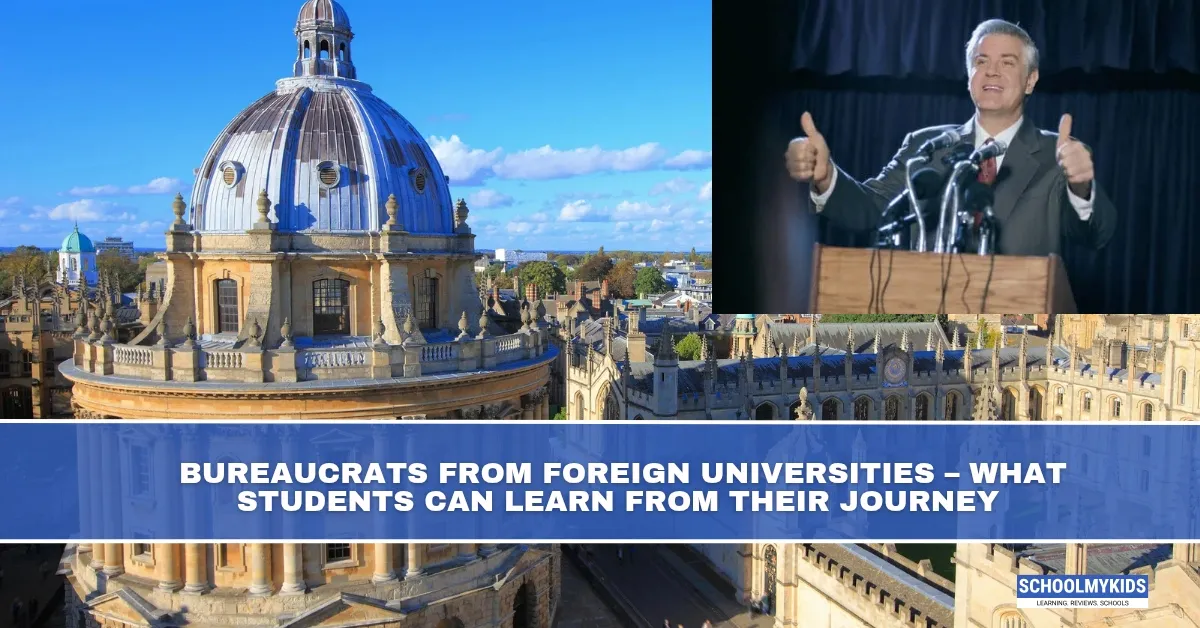India's administrative landscape includes numerous distinguished bureaucrats who obtained their education from prestigious foreign universities, demonstrating how international academic exposure can enhance public service capabilities. Their journeys offer invaluable lessons for students aspiring to excel in civil services while contributing meaningfully to national governance.
Notable Bureaucrats with Foreign University Education
Dr. Manmohan Singh - Oxford and Cambridge Universities
Former Prime Minister and distinguished economist Dr. Manmohan Singh represents the pinnacle of academic excellence, translating into administrative leadership. His education at St. John's College, Cambridge, and Oxford University equipped him with:
- Economic expertise that proved crucial during India's 1991 economic liberalization
- Analytical thinking skills developed through rigorous academic research
- International perspective on economic policy and governance
- Academic credentials that enhanced his credibility as Finance Minister and Prime Minister
Key Lesson for Students: Academic excellence in specialized fields can become powerful tools for public service, especially when combined with a deep understanding of India's challenges.
Dr. S. Jaishankar - Jawaharlal Nehru University and Singapore
External Affairs Minister Dr. S. Jaishankar, though primarily educated at JNU, completed significant diplomatic training and fellowships abroad. His international exposure includes:
- Strategic studies that enhanced his diplomatic capabilities
- Cross-cultural communication skills essential for international negotiations
- Global network building that strengthens India's foreign relations
- Policy analysis expertise developed through international academic engagement
Key Lesson for Students: Combining domestic education with international exposure creates well-rounded professionals capable of representing India effectively on global platforms.
Contemporary Examples in Civil Services
IAS Officers with International Education
Several serving IAS officers have leveraged foreign university education to enhance their administrative effectiveness:
- Officers with MBA degrees from institutions like INSEAD, Wharton, and London Business School
- Public policy graduates from Harvard Kennedy School, Oxford, and LSE
- Development studies specialists who bring international best practices to Indian contexts
- Technology management experts who modernize government operations
Learning Framework for Aspiring Students
Academic Excellence as Foundation
Foreign-educated bureaucrats consistently demonstrate that academic excellence forms the foundation for administrative success:
Strategic Academic Planning:
- Choose undergraduate programs that build strong analytical and communication foundations
- Maintain exceptional academic records to qualify for competitive scholarships
- Develop research capabilities through undergraduate thesis projects and publications
- Build quantitative and qualitative analysis skills essential for policy work
Global Perspective Development
International education provides a crucial global perspective that enhances administrative effectiveness:
Comparative Governance Understanding:
- Study different political and administrative systems to identify best practices
- Analyze policy implementations across various countries and contexts
- Understand international cooperation mechanisms crucial for modern governance
- Develop cross-cultural sensitivity essential for inclusive policy making
Specialized Expertise Acquisition
Foreign universities often provide specialized knowledge directly applicable to administrative challenges:
Policy-Relevant Specializations:
- Public Policy and Administration programs that provide practical governance skills
- Economics and Development Studies crucial for policy formulation and evaluation
- International Relations essential for diplomatic and external affairs roles
- Technology and Innovation Management increasingly important for digital governance
Practical Strategies for Students
Scholarship and Funding Preparation
Most successful candidates secure international education through scholarships:
Major Scholarship Opportunities:
- Rhodes Scholarship for Oxford University (covering full expenses plus stipend)
- Chevening Scholarship for UK universities (fully funded by British government)
- Fulbright Scholarship for US universities (comprehensive support for Indian students)
- Commonwealth Scholarship for various universities across Commonwealth countries
Preparation Requirements:
- Maintain GPA above 3.5 throughout undergraduate studies
- Develop strong extracurricular profiles demonstrating leadership and social service
- Build research experience through internships and academic projects
- Prepare compelling personal statements connecting academic goals with public service aspirations
Skill Development Priorities
Focus on developing skills that international education enhances:
Core Competencies:
- Critical thinking and analytical reasoning through rigorous coursework
- Research methodology and data analysis essential for evidence-based policy
- Written and oral communication in international academic environments
- Leadership and teamwork through diverse group projects and activities
Network Building and Mentorship
Leverage international education for long-term professional networks:
Strategic Relationship Building:
- Connect with professors who specialize in governance and public policy
- Engage with fellow students from diverse backgrounds and career aspirations
- Participate in policy conferences and academic symposiums
- Maintain relationships with alumni working in public service roles
Career Integration Strategies
Combining International and Domestic Experience
Successful bureaucrats effectively combine international education with deep domestic understanding:
Integration Approaches:
- Return to India for practical experience in government, NGOs, or policy think tanks
- Maintain connections to international academic and policy communities
- Apply global best practices to Indian governance challenges
- Serve as bridges between international organizations and Indian administrative systems
Examination Preparation Enhancement
International education provides advantages in competitive examinations:
Competitive Advantages:
- Broader knowledge base covering international affairs and comparative governance
- Enhanced analytical abilities crucial for essay writing and interview performance
- Confidence and articulation skills developed through international academic environments
- Current affairs understanding from global perspectives often tested in examinations
Long-term Impact and Contribution
Policy Innovation and Implementation
Foreign-educated bureaucrats often drive policy innovation:
Innovation Areas:
- Digital governance initiatives inspired by international best practices
- Economic policy reforms based on comparative analysis and global trends
- Social policy programs incorporating successful models from other countries
- International cooperation projects leveraging personal networks and expertise
Institution Building and Capacity Enhancement
These officers contribute to institutional strengthening:
Capacity Building Roles:
- Training programs for fellow civil servants incorporating international best practices
- Policy research initiatives that inform government decision-making
- International cooperation projects that enhance India's global engagement
- Academic collaboration between Indian institutions and foreign universities
Conclusion: A Strategic Pathway
The journey of foreign-educated bureaucrats demonstrates that international education can significantly enhance public service capabilities when strategically pursued. For students aspiring to similar paths, the key lies in:
Strategic Planning: Viewing international education as an investment in public service capabilities rather than personal prestige
Academic Excellence: Maintaining exceptional standards that open doors to premier institutions and scholarships
Cultural Sensitivity: Ensuring that global exposure strengthens rather than weakens commitment to Indian values and challenges
Practical Application: Focusing on education that provides directly applicable skills for governance and administration
Network Utilization: Building relationships that support long-term public service goals
The ultimate lesson from these distinguished careers is that the best public servants combine global knowledge with local wisdom, international exposure with domestic commitment, and academic excellence with practical service orientation. Their success demonstrates that foreign education, when pursued with clear public service goals, becomes a powerful tool for contributing to national development and administrative excellence.
Students following this path must remember that international education is not an end in itself but a means to serve India more effectively, bringing world-class knowledge to address homegrown challenges and representing the country with distinction on global platforms.








Be the first one to comment on this story.